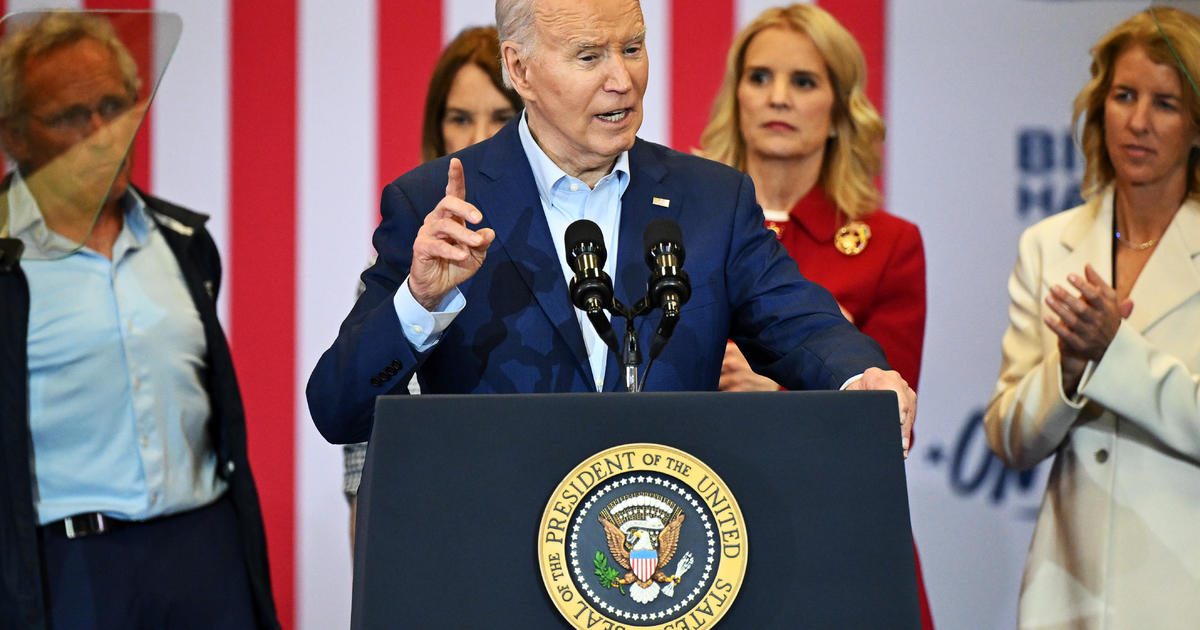To recruit in the U.S., ISIS steals Western ideas, says terrorism expert Robert Pape
In crafting its video propaganda, militant group ISIS has often looked to common superhero narratives to maximize the effectiveness of their recruitment efforts in the west, according to terrorism expert Robert Pape.
"They took a page right out of the Hollywood, right out of our blockbuster superhero movies called the 'heroic narrative,'" Pape said. "And what they did is they focused on a narrative how an ordinary individual can become super empowered to help a community that he or she doesn't really even know."
In so doing, Pape said, ISIS effectively targeted people "who are especially prone to take risks," including convicted criminals or those with violent histories.
In an interview with Intelligence Matters host and CBS senior national security contributor Michael Morell, Pape, who is a political science professor and Director of the Chicago Project on Security and Threats (CPOST) at the University of Chicago, explained that ISIS, in downplaying religion and emphasizing heroism, has managed to tap into a pool of recruits that Al Qaeda had not targeted or reached. (Morell serves as an advisory board member at CPOST; the position is unpaid.)
Pape and his team have spent years reviewing all the cases of individuals who were indicted in U.S. courts or who carried out attacks in the ISIS' name since 2014. They have reviewed thousands of hours of video propaganda produced and distributed by militant groups and analyzing whom it targets, how, and to what effect. Pape has worked with the FBI in support of sting operations in the United States and is continuing to investigate the transformation between what he calls the "pre-convert stage" and the "post-convert stage."
"We spend so much time in the media talking about Islamic militants as religious nuts," Pape told Morell. "We're expecting everything is infused with religion when in fact, ISIS and other militant groups have since distanced themselves from heavy indoctrination with religion because religion doesn't sell."
Most ISIS recruits, Pape said, are different than those that were targeted in previous years by Al Qaeda. "[T]he core pool of who was attracted to ISIS today and other militant groups has changed fundamentally since 9/11," he said.
While roughly two-thirds of Al Qaeda's recruits were immigrants, the reverse is true for ISIS – over two thirds of ISIS recruits were born in the United States, and the other one-third have lived in the country for decades, Pape said. Only two were refugees.
"ISIS did this with video propaganda using the internet to infiltrate videos directly into our homes in Chicago, in the east coast, in the west coast, in the south," Pape told Morell. "This was a fundamentally new threat. We are not waging a war like we did on 9/11. And we've gotta stop fighting the last war."
Pape indicated that, although propaganda production had "shrunk tremendously" alongside ISIS-held territories, the content already produced has remained accessible online and is near-impossible to destroy.
He also said other militant groups, including Al-Nusra in Syria and Al-Shabaab in Somalia had learned from ISIS' successes, and have made headway in video recruitment efforts of their own.
Al-Shabaab in particular, he said, was "fast becoming number two in terms of producing video recruitment."
For much more from Michael Morell's conversation with Robert Pape, you can listen to the new episode and subscribe to Intelligence Matters here.



